Your Ultimate Guide to Sapa Travel: Best Places, Activities, and Tips
Sapa provides outdoor adventures, varied ethnic cultures, and amazing scenery. Sapa should be on every traveler’s bucket list whether their intended trip is one of exploration of its distinctive towns, treking through verdant valleys, or just leisurely absorption of its beauty. This is a MOTOGO Tours‘ guide to maximize your Sapa travel experience.
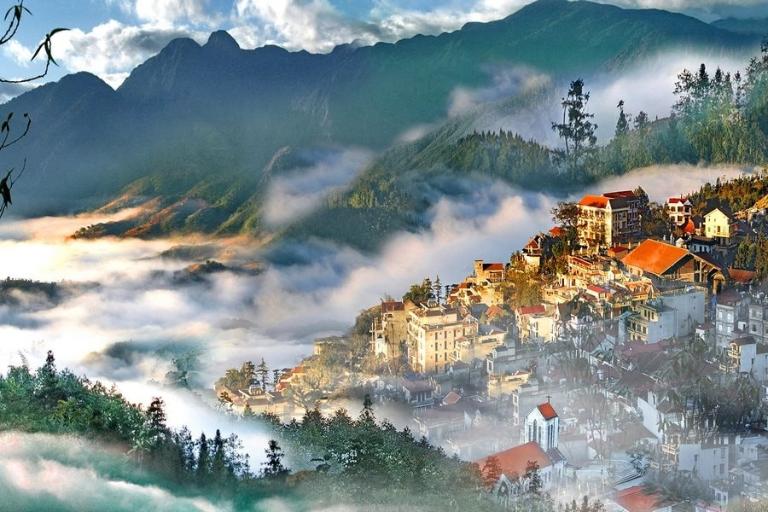
Introduction to Sapa
Nestled in the northern mountains of Vietnam, Sapa is a land of dramatic landscapes, vibrant ethnic cultures, and terraced rice fields that seem to cascade down the hillsides. Known for its misty mornings, cool climate, and colorful local markets, Sapa offers photographers and travelers alike a chance to immerse themselves in both natural beauty and the rich traditions of its indigenous communities.
Mapping the Magic: Understanding Sapa’s Unique Geography and Culture
To truly appreciate Sapa, you need to understand the powerful forces that shaped it. Sapa is perched high in Vietnam’s northwest, cradled by the imposing Hoang Lien Son mountain range. This geographical placement gives it two vital characteristics: the dramatic, often erratic, climate and the necessary isolation that preserved the distinct cultures of its long-term residents.
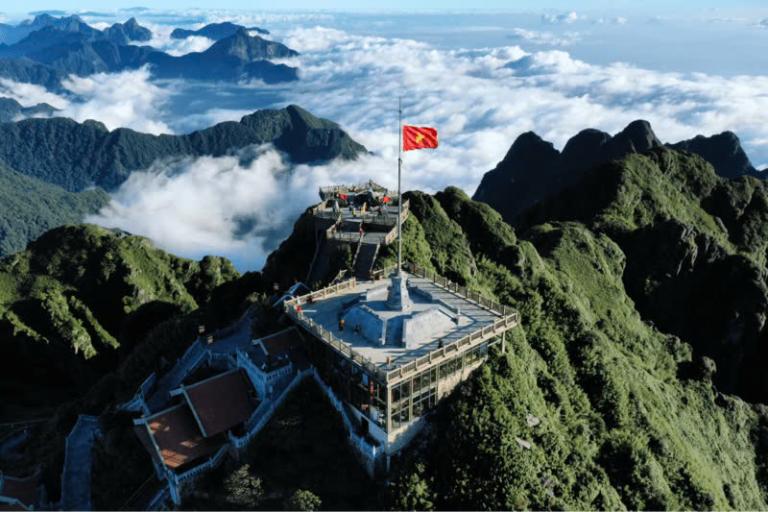
The People and the Peaks: Sapa’s Cultural Tapestry
Sapa’s charm goes beyond its landscapes, it lies in its diverse ethnic communities. The Black H’mong, Red Dao, Tay, and Giay each preserve distinct clothing, dialects, customs, and farming traditions.
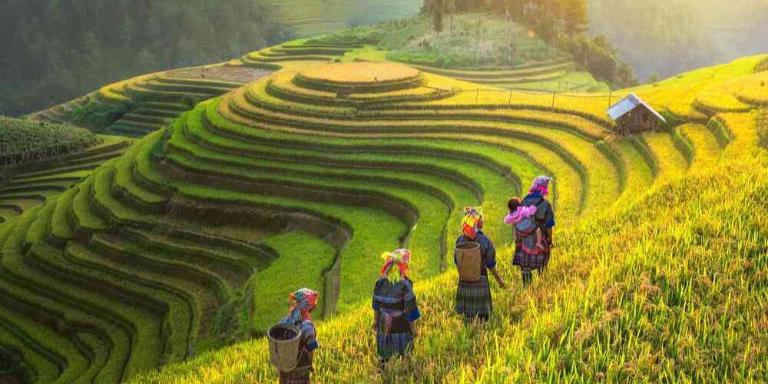
Visiting Sapa Market or trekking the rice terraces offers a firsthand glimpse into these vibrant cultures. Locals are the guardians of the terraces, skilled weavers, and welcoming hosts, turning every journey into an authentic cultural exchange.
>>> Sapa motorbike tours: The ultimate adventure in Vietnam’s majestic mountains
The Sapa Hall of Fame: Essential Attractions You Cannot Miss
Sapa’s major attractions offer a compelling duality: on one hand, you have human ingenuity conquering nature, and on the other, you have ancient cultures living in harmony with it.
Conquering the Roof: Fansipan Mountain
Fansipan Mountain, at 3,143 meters, is the “Roof of Indochina.” Once a challenging multi-day climb, visitors can now reach the summit easily via the Sun World Fansipan Legend cable car, enjoying a 15-minute ride above lush forests and clouds.
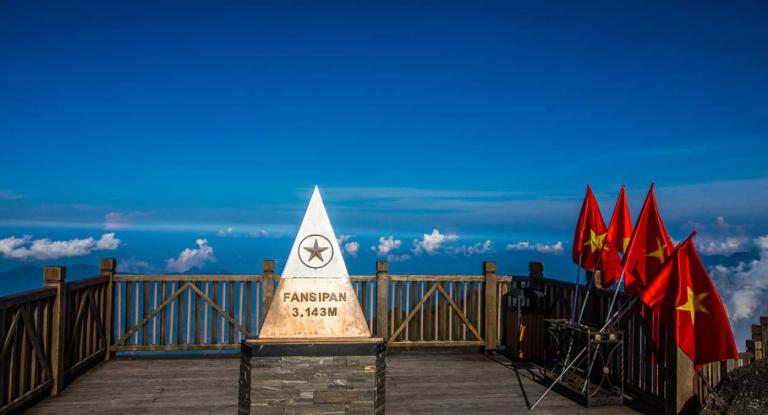
Sapa Glass Bridge: A Thrilling Experience
The Sapa Glass Bridge is a must-see site for anybody looking for an adrenaline surge. At the base of Fansipan Mountain, the bridge provides a heart-pounding experience for everyone daring enough to cross it by spanning across a deep valley. With the translucent glass floor of the bridge, guests may get an exciting and terrifying view straight down into the valley below.
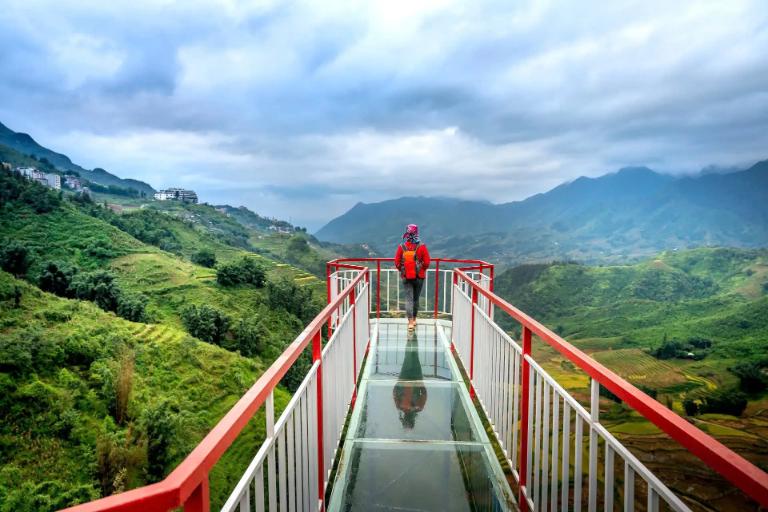
Comprising the greater Fansipan Legend complex, which also features a cable car station, temples, and a park, the Sapa Glass Bridge is part of Sturdy steel cables support the bridge, which has a contemporary look and is therefore a unique sight in the area. The Sapa Glass Bridge is an exciting opportunity to see the natural beauty of the region whether your goal is to conquer your fear of heights or just appreciate the amazing vistas.
Sapa Town: A Charming Mountain Retreat
One big draw is the town of Sapa itself. Tucked within the Hoang Lien Son mountain range, Sapa Town combines modern Vietnamese elements with colonial-era building style. Popular base for visiting the surrounding areas is its mild temperature and breathtaking scenery.
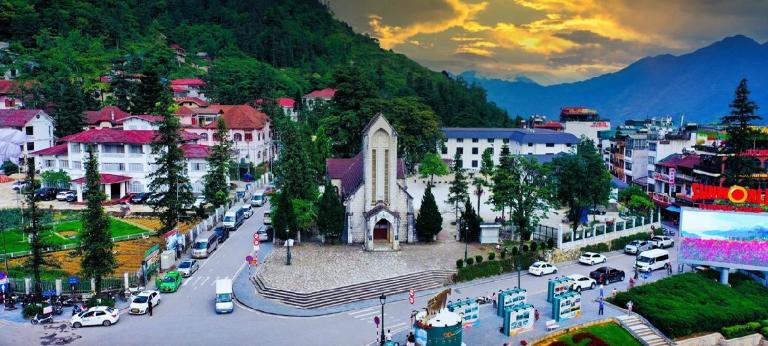
Wander around Sapa Market, where local produce, traditional attire, and vibrant handcrafts abound. Interacting with ethnic minority groups—especially the H’mong, Tay, and Dzao people—who come to promote their goods is another fantastic opportunity. Remember to stop by one of the neighborhood cafés or eateries for a bowl of steaming pho, a traditional Vietnamese cuisine, or a cup of Sapa’s famed hot mulled wine.
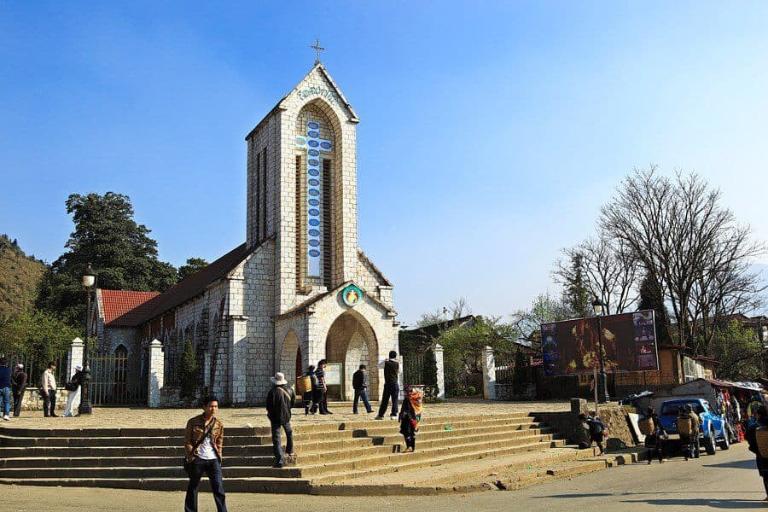
The Sapa Stone Church, sometimes known as the Holy Rosary Church, is among the most recognizable buildings in the area. Constructed by the French early in the 20th century, this church reminds us of the colonial past of the area. With its unique European design, the chapel is a great place for guests to snap pictures and enjoy the crisp mountain air.
The Valley of Life: Muong Hoa and Its Ancient Secrets
If Fansipan is Sapa’s crown, Muong Hoa Valley is its beating heart. Stretching across miles of iconic terraced rice fields, the valley sustains local communities and offers trekkers a chance to experience rural life amid stunning scenery.
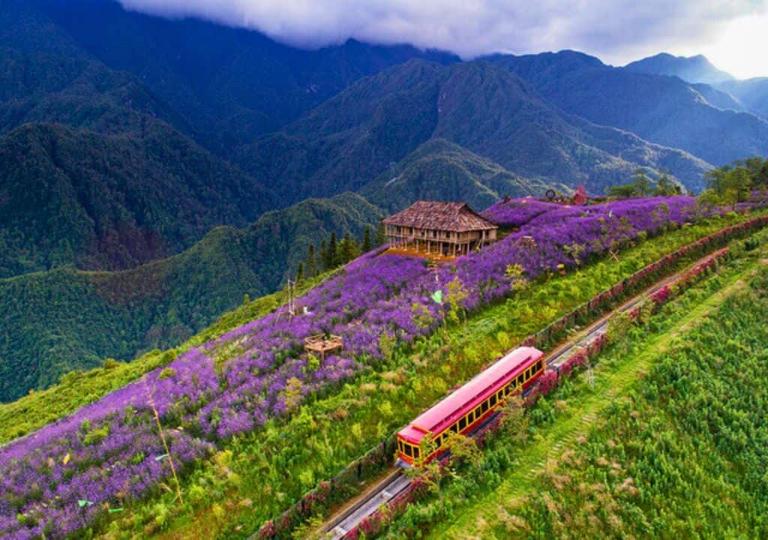
The Muong Hoa Stream winds through the valley, lined with ancient stone carvings and petroglyphs thousands of years old. These mysterious relics add historical depth, making Muong Hoa both a natural and cultural highlight of Sapa.
>>> Sapa – Ha Giang Route Travel Guide: Discover Vietnam’s Scenic Northeast
Cat Cat Village
Cat Cat Village is a great spot to really see Black H’mong people’s traditional way of life right next to Sapa Town. With houses perched on the brink of steep hills and a rich cultural legacy, this community is renowned for its gorgeous scenery.
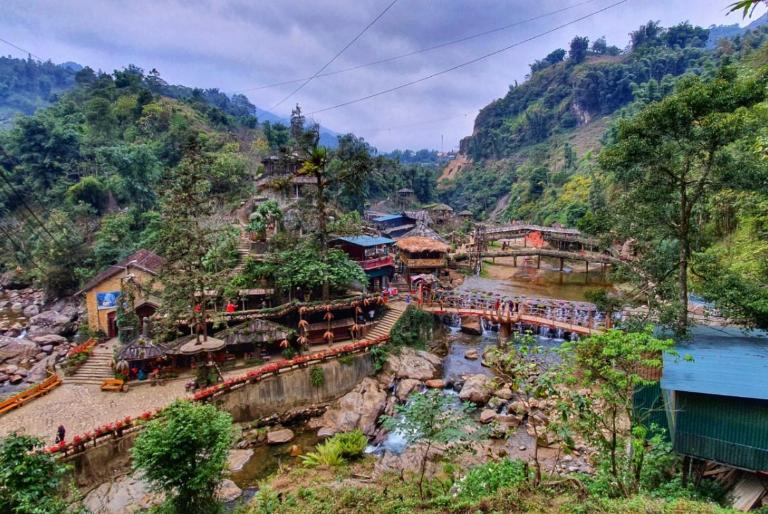
Along with the fields where the residents raise rice and corn, visitors may explore the meandering, small trails of the hamlet and view the bamboo and wood-built traditional homes. A trip to Cat Cat Village provides an interesting window into the H’mong people’s culture and way of life, including their handicrafts—weaving and silver jewelry manufacturing among others.
Ta Van Village
Ta Van Village offers visitors a unique opportunity to experience authentic rural life by staying with local families in traditional wooden homes. Nestled in the Muong Hoa Valley, the village is home to the Giay, H’mong, and Tay ethnic groups, each preserving their own distinct customs and traditions.
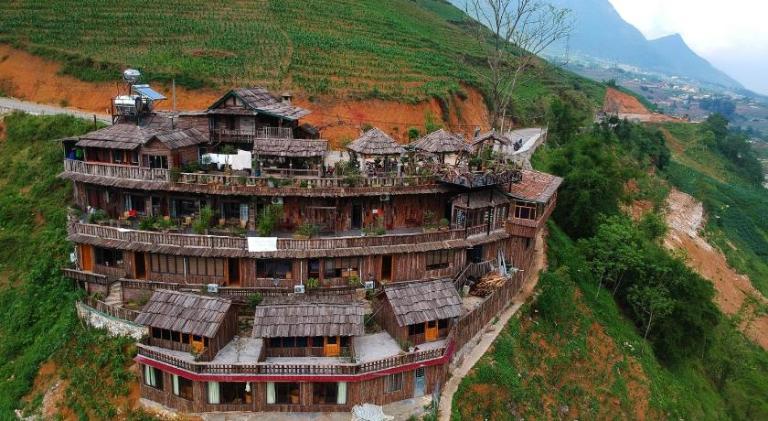
In Ta Van, you can explore nearby marketplaces, walk across terraced rice fields, and pick knowledge about ancient farming methods. Nature enthusiasts and photographers would find the area ideal since it boasts breathtaking views of the neighboring mountains and valleys.
Thac Bac Waterfall
One of the most often visited natural wonders in the region, Silver Waterfall is roughly 12 kilometers from Sapa. With water flowing down 200 meters of rocky ground and producing a dazzling silver effect in the sunlight, the waterfall is a stunning sight. Towering cliffs and rich vegetation that gives the area a fairy tale-like impression define the equally breathtaking surroundings.
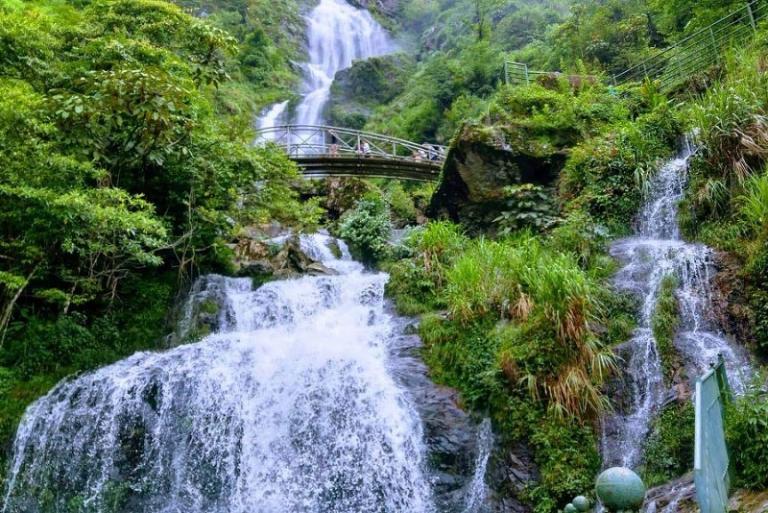
Though it’s a stunning sight all year long, the best time to visit Thac Bac Waterfall is during the wet season when the water flow is at its highest. Road makes the waterfall easily reachable, and a little climb gets guests to a viewing platform where they may appreciate the whole grandeur of the falls. For those looking for adventure, the nearby environment presents chances for hiking and treking.
Love Waterfall: A Romantic Destination
Another breathtaking waterfall in the Sapa region is Love Waterfall; its name captures the romantic myth around it. The waterfall is connected to a local love tale of two young people from several ethnic backgrounds who were sadly split apart by conflict. Perfect for leisure and introspection, the waterfall is surrounded by rich vegetation and fauna and sits in a calm, beautiful setting.
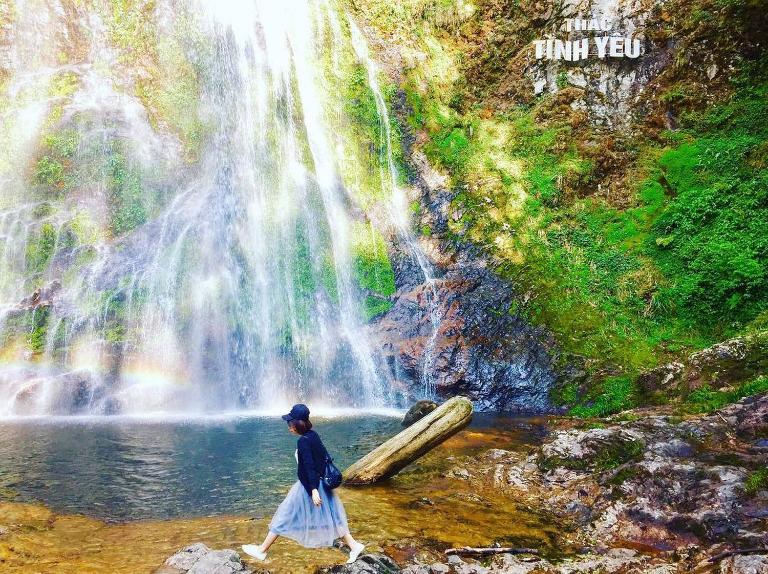
Getting to Love Waterfalls calls for a climb along a lovely woodland walk, and from the top of the falls the perspective is very amazing. This romantic location is more appealing since the mist rising from the waterfall produces a beautiful, almost magical environment. Love Waterfall is a must-visit for anyone wishing to take up some local culture and savor the wonders of nature.
Sapa Rice Fields
Usually in September and October, the Sapa rice fields are most frequented during harvest season when their beautiful golden yellow contrasts strikingly with the surrounding rich vegetation. Trekking across the fields is a calm and fulfilling activity where you can see nearby farmers working the ground, pick knowledge about conventional agricultural methods, and engage with the people.
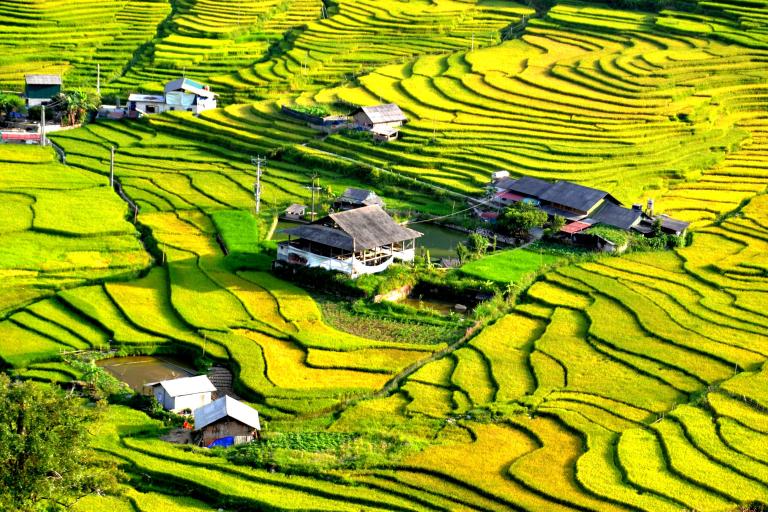
O Quy Ho Pass
O Quy Ho Pass is among Vietnam’s most well-known and difficult mountain passes. One of the highest points in the area, the pass links Lao Cai Province with Lai Chau Province and sits on National Road 4D, at 2,000 meters. Motorcyclists and adventure seekers especially love the road because of its stunning scenery, tight turns and steep hills.
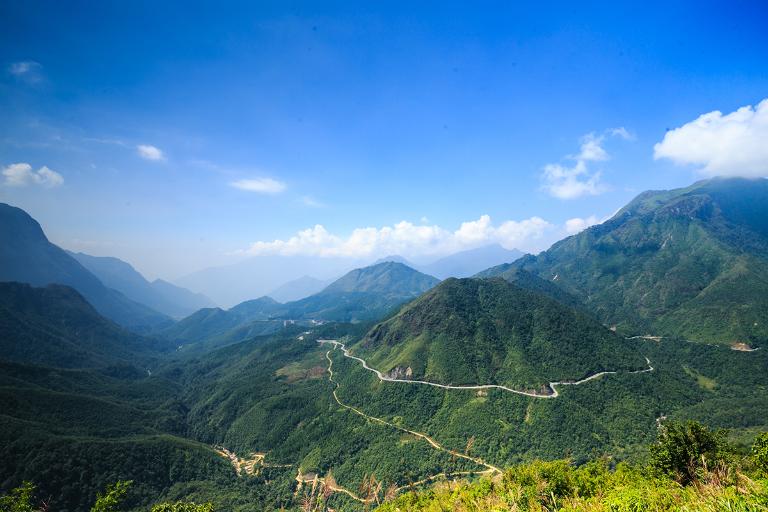
>>> Best Time to Visit Sapa: Complete Travel Guide for 2025
Beyond the View: Signature Adventure Activities in Sapa
Sapa is not a backdrop; it’s an interactive playground. The adrenaline-junkie or the simple nature lover will find plenty of ways to get their heart pumping here.
Trekking in Sapa’s Rugged Terrain
Trekking in Sapa is undoubtedly one of the most popular adventure activities. Trekkers’ wish come true in the area thanks to its stunning scenery, which ranges from tall mountains to lush green valleys and gorgeous rice terraces. From simple walks across little towns to difficult climbs up high mountain roads, there are several trekking options for all degrees of expertise.
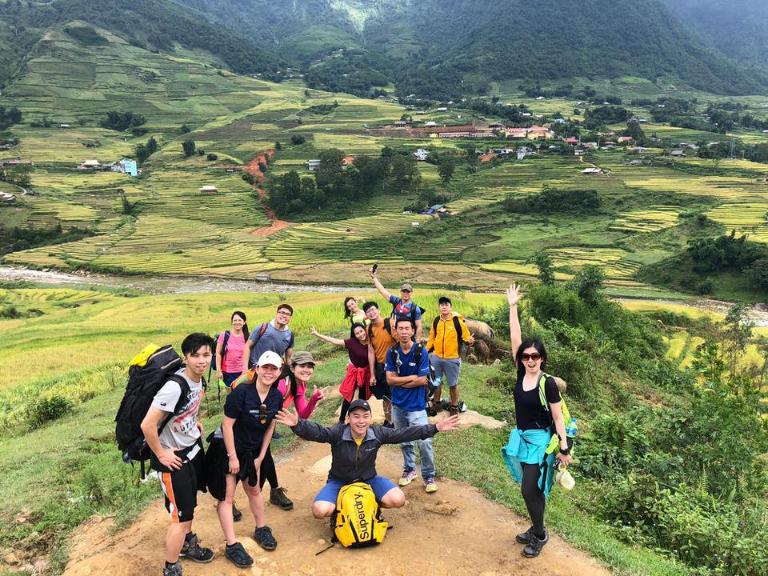
Trekking Routes:
- Ta Van to Lao Chai:Ta Van to Lao Chai travels through nearby ethnic minority communities such the Black H’mong and Red Dzao and provides breathtaking views of the Muong Hoa Valley. This simple to moderate walk.
- Sapa to Fansipan Summit: For experienced hikers, climbing the highest mountain in Vietnam, Fansipan Summit, presents the ultimate test. Usually spanning many days, the journey leads across rocky roads, deep forests, and up to the famous summit at 3,143 meters.
- Cat Cat Village Trek: Visit the ancient Cat Cat village for a more laid-back yet nonetheless fulfilling trip. There are fantastic waterfalls, quaint houses, and breathtaking views on this shorter climb.
>>> SaPa Trekking Tour: Best Routes, Tips & Cultural Insights for 2024
Motorbiking in Sapa
For those who prefer two wheels, Sapa’s mountainous roads are a motorcyclist’s dream. The winding paths and dramatic elevation changes are exhilarating. The must-ride route is through the O Quy Ho Pass, one of Vietnam’s “Four Great Mountain Passes.” Located at a staggering 2,000 meters, this pass offers mind-blowing panoramic views, often above the cloud line, earning it the nickname “Heaven’s Gate.”
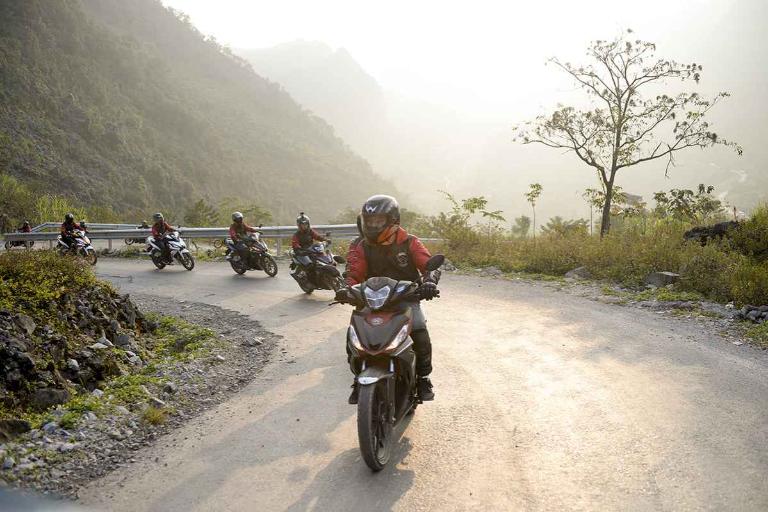
This route connecting Lao Cai and Lai Chau is challenging but rewarding, showcasing the immense scale of the Hoang Lien Son range. If these high-altitude thrills appeal to you, you might also want to explore Ha Giang motorbike tours for the ultimate continuation of your Northern Vietnam riding adventure. Rent a reliable motorbike, wear warm clothes, and prepare for one of the most scenic drives of your life.
Rock Climbing and Abseiling
Additionally offering chances for rock climbing and abseiling are Sapa’s rugged surroundings. The location is well-known for its breathtaking views as well as for its sheer cliffs ideal for ascent. For rock climbers seeking a different experience, this is a fantastic place with mountain views and difficult paths combined.
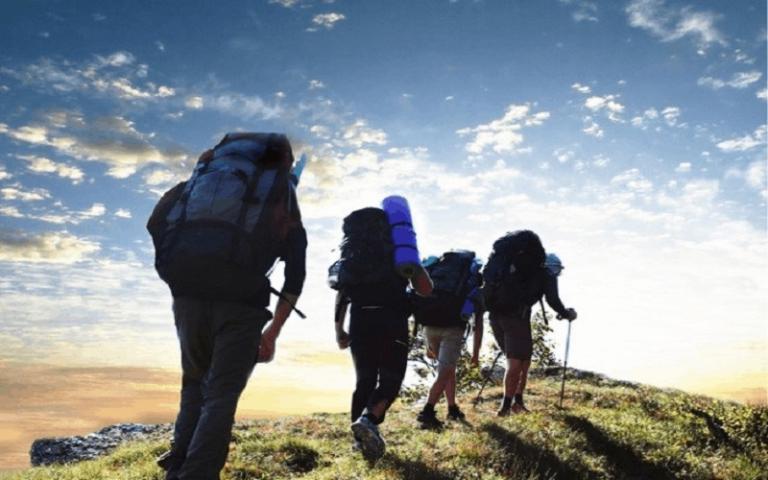
Whether you are a total novice or an experienced climber, many local tour companies provide rock climbing courses. The steep cliffs close to the Fansipan area are among the best locations for climbing and abseiling since the terrain and altitude offer both a physical challenge and a stunning background.
>>> The Best Things to Do in Sapa: From Trekking to Cultural Experiences
Zip Lining
Another amazing approach to enjoy Sapa’s breathtaking scenery is zip lining. The area boasts multiple zip-lining courses with exciting rides and amazing vistas. Near Fansipan, where you can fly over the verdant forests and catch a view of the craggy mountains in the distance, Sapa boasts the longest and most well-known zip line.
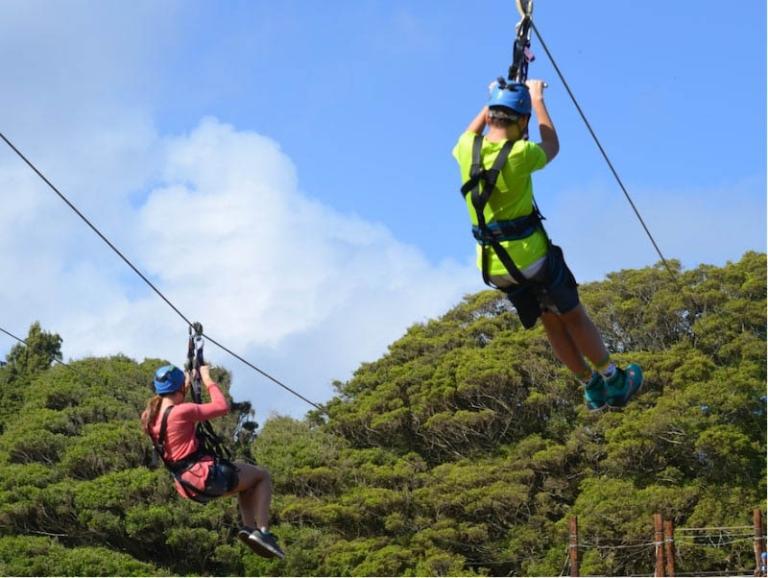
Canyoning in Sapa
Canyoning in Sapa is an amazing experience for anyone looking for an adrenaline-pounding adventure. Trekking, hiking, swimming, and rappelling down waterfalls all are part of this pastime. The natural terrain of Sapa with its rivers and waterfalls provides the ideal environment for canyoning. You will dive into glistening clean pools, slide down naturally occurring water slides, and rappell down waterfalls.
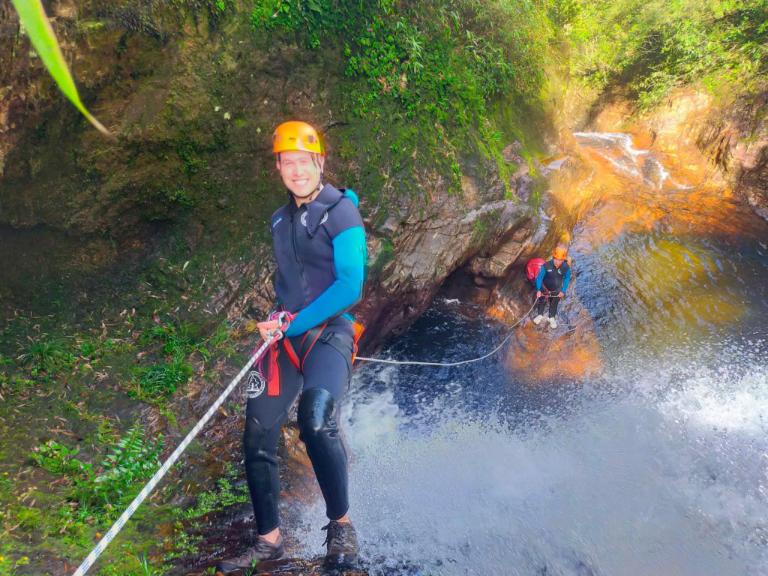
With some excellent rappelling areas, the Thac Bac Waterfall (Silver Waterfall) is among the most often used canyoning sites. Local tour companies that supply all required tools, guides, and training can help to schedule the activity.
Paragliding
Paragliding in Sapa is the way to go if you want an exciting flying trip. One of the greatest approaches to appreciate the panoramic views of the verdant valleys, terraced farms, and imposing mountains. You can schedule a tandem flight with a qualified pilot and soar above the magnificent scenery of Sapa. Gliding across the sky and appreciating the beauty of the area from above, the experience is calm yet exciting.
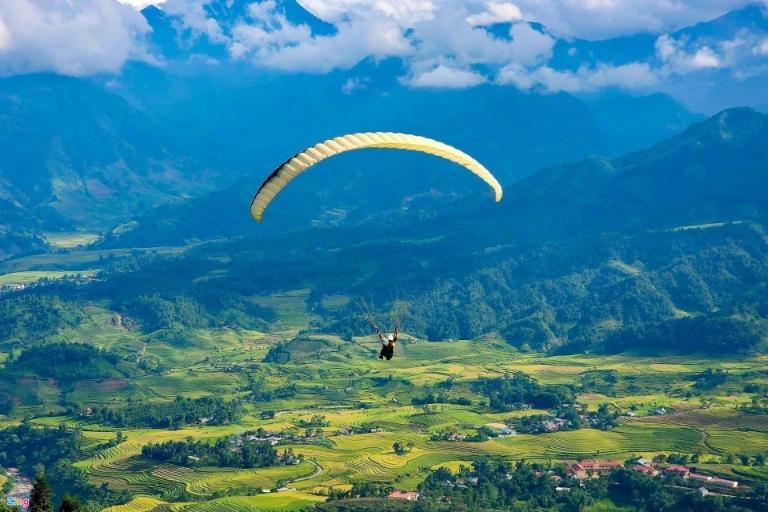
Local Sapa Cuisine to Try
Sapa represents the variety of the ethnic groups in the area since it is a melting pot of civilizations. Whether your taste is for fresh local veggies, spicy grilled meats, or stews, the cuisine of Sapa will surely make a mark. Here are some more must-try meals from this gorgeous mountain town:
Salmon Hotpot
Salmon farming finds the ideal conditions in the cold temperature and clean waters near Sapa; fresh fish is used in a variety of local cuisine, most famously in the Salmon Hotpot. Perfect for cold evenings, this is a filling, aromatic delight. Present with a variety of veggies, noodles, and a fiery dipping sauce, the hotpot lets you cook the fish and vegetables right at your table, thereby fostering a group and participatory dining experience.
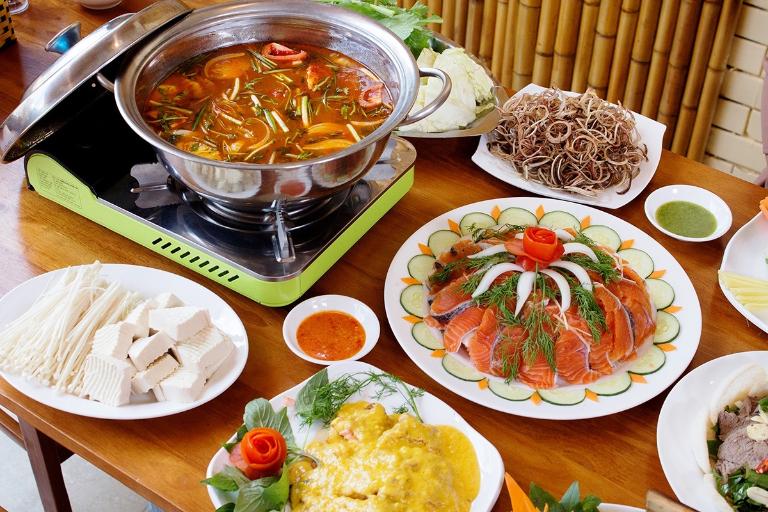
Grilled Pork Sausage
Popular local snack in Sapa, grilled pig sausage is appreciated for its strong taste and pleasing texture. Made from finely minced pork combined with garlic, spices, and occasionally herbs like lemongrass or ginger, the sausues are The sausages are cooked over an open flame following their stuffing into a casing, producing a crispy outside and smokey scent. Both residents and visitors alike love this street food dish for its savory taste and pleasing bite.

Black Chicken
Unique delicacy derived from a breed of chicken specific to northern Vietnam is black chicken. Rich taste and a soft texture define the dark, almost black flesh. Chinese herbs slow-cooked the chicken will give the meat earthy, aromatic tastes. Usually eaten during family get-togethers or other events, this meal is accompanied by rice or noodles as a side.
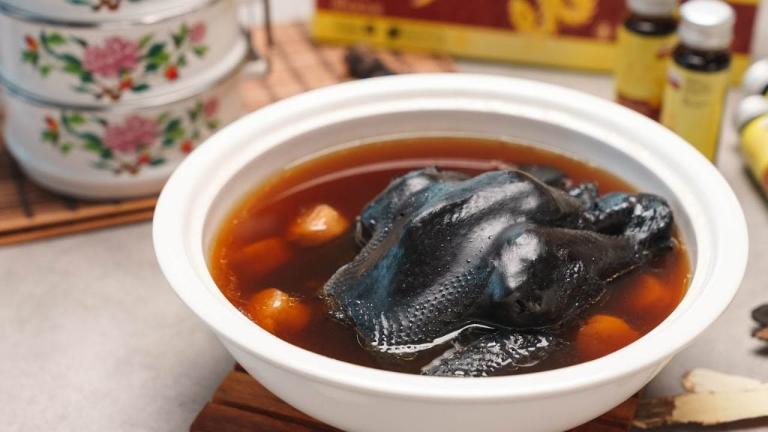
Bitter Bamboo Shoot Soup
One of Sapa’s most recognizable and unique foods is Canh Măng Chua, bitter bamboo shoot soup. This meal, as the name implies, is created using bitter- tasting bamboo shoots that are balanced by delicate pork and a variety of indigenous herbs. Perfect for chilly days, it is hot and usually eaten with a bowl of rice.
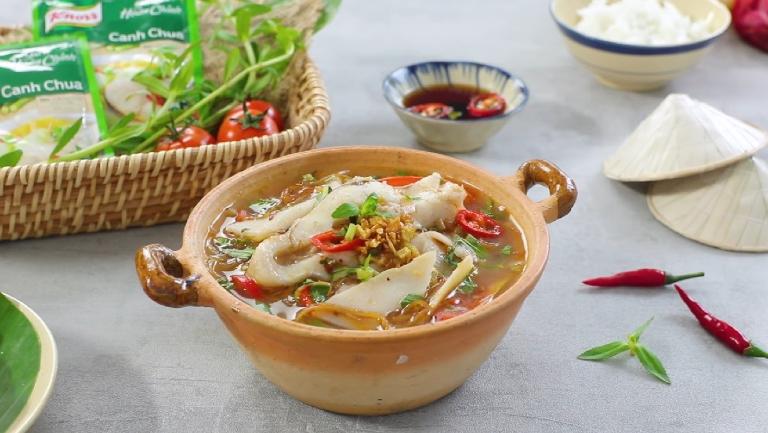
>>> Let’s see more: Discover Best Restaurants in Sapa for Food Lovers
Thang Co
One of the most recognizable dinners in Sapa, Thang co is a traditional dish among the H’mong people. Usually composed of beef or pig, this filling stew calls for a range of herbs, vegetables, and spices. Local herbs like ginger, lemongrass, and anise—which provide a particular taste—help to make it so special. A great meal for cool mountain days, thang co is usually presented with rice and a side of pickled veggies.
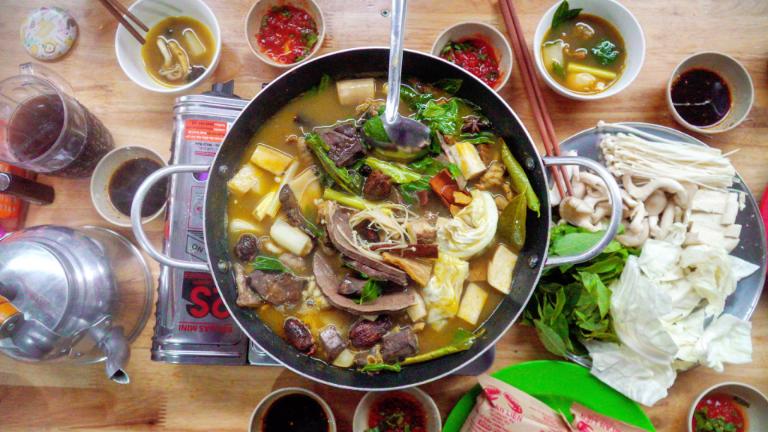
The Golden Rule of Timing: Choosing the Perfect Season for Your Sapa Trek
If Sapa is a stage, the seasons are its constantly changing curtains. The scenery you experience is entirely dependent on when you choose to visit. I can’t stress this enough: visiting during the wrong time can mean the difference between stunning clarity and days of inescapable, dreary fog. So, let’s pinpoint the optimal windows for your Sapa travel adventure.
When the Mountains Wear Gold: Peak Harvest Season
The best time to visit Sapa is from September to November, when the rice terraces turn a stunning golden hue. The low autumn sun bathes the valley in warm light, creating the iconic “liquid gold” landscape.
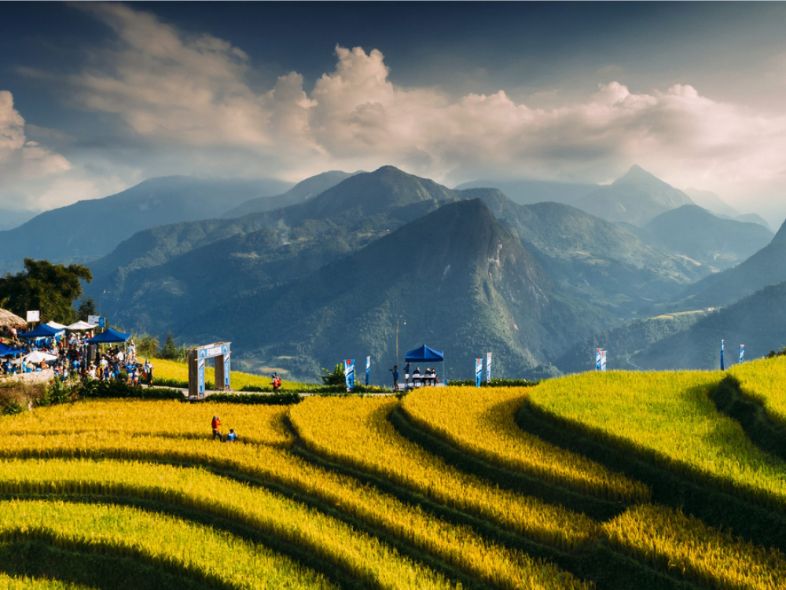
These months also offer ideal trekking conditions: trails are drier and clearer after the summer rains, and temperatures are cool and comfortable, making this the perfect season for capturing Sapa at its most vibrant.
The Ethereal Mirror Season and the Misty Winter
From March to May, Sapa’s flooded rice terraces create the Mirror Fields, reflecting the sky and clouds in a serene, poetic display—perfect for tranquil, reflective photography.
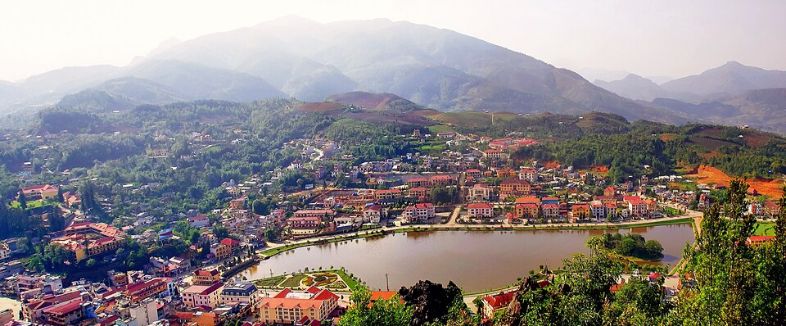
Between December and February, Sapa experiences the Winter Chill, with freezing temperatures and persistent fog. While Fansipan’s snowy peaks can be breathtaking, low visibility and challenging conditions make travel more difficult, so warm layers are essential.
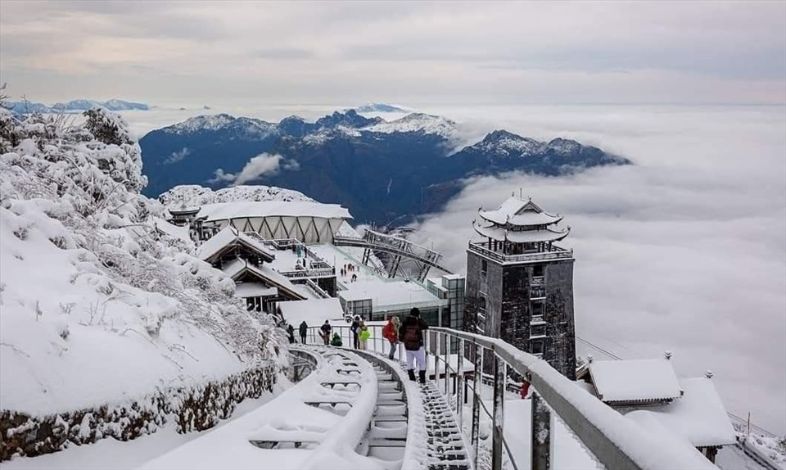
The Logistics of Serenity: Practical Tips for Your Sapa Trip
A smooth trip starts with smart planning. Don’t let logistics interrupt your mountain zen.
Choosing Your Journey: Train vs. Bus Logistics
Most trips to Sapa start in Hanoi, with two main options: the Overnight Sleeper Train to Lao Cai (then transfer) or a direct Sleeper Bus. The train takes 8–9 hours, offering scenic views and a more comfortable ride, ideal for light sleepers.
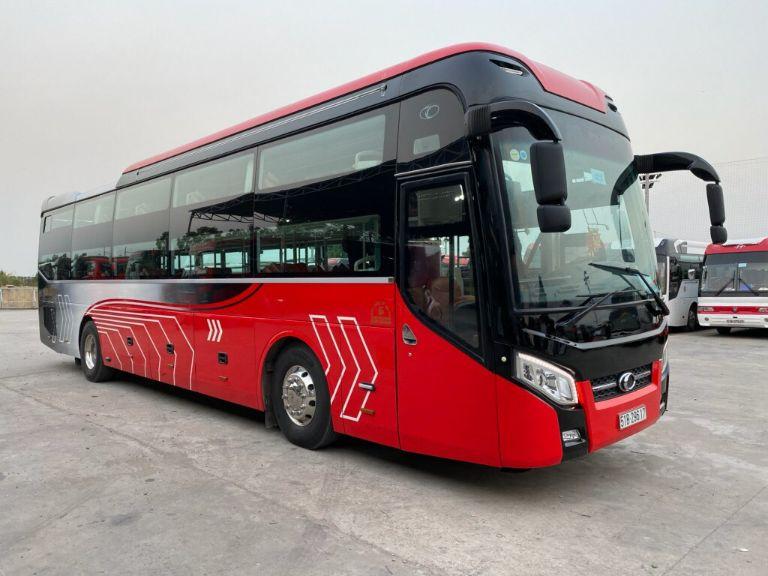
The bus is faster (5–6 hours) and usually cheaper, dropping you directly in Sapa. If you’re prone to motion sickness, the train plus a short taxi ride is gentler on winding roads. Always book reputable carriers in advance, especially during peak travel season.
Where to Rest Your Head: Hotel, Resort, or Homestay?
Sapa Town offers everything from luxury resorts like Victoria Sapa to budget-friendly guesthouses, ideal for those seeking convenience and modern amenities.
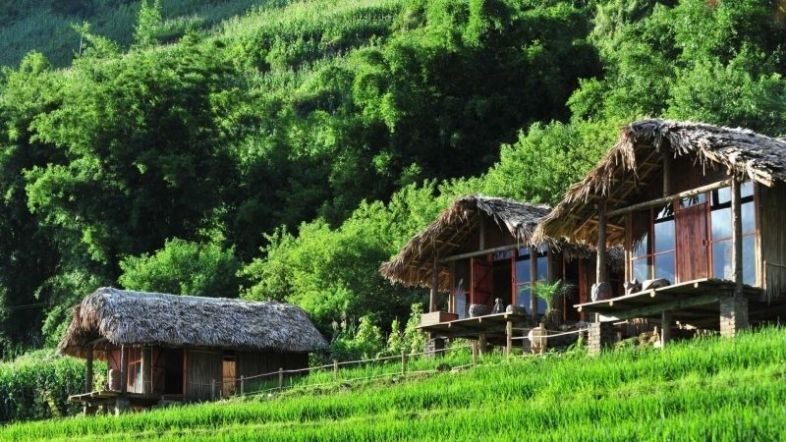
For a more immersive experience, consider a homestay in villages such as Ta Van or Giang Ta Chai. Staying with a local family lets you experience daily life and customs firsthand, offering cultural insight far beyond what any hotel can provide.
Respect and Connection: Essential Cultural Etiquette
When visiting Sapa’s ethnic minority communities, always ask permission before photographing people, especially children and elders, and dress modestly when entering villages or homes.
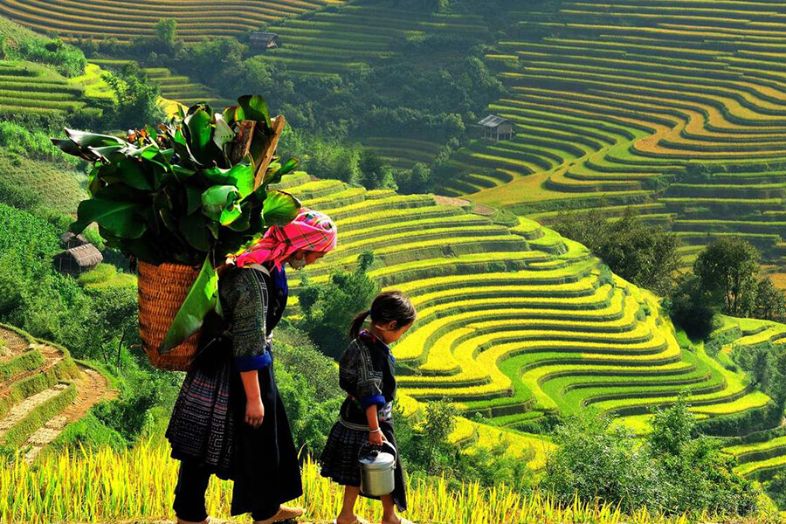
Support local families by buying handicrafts directly from the artisans you meet. Following these respectful practices helps preserve their culture while ensuring tourism benefits the community.
Sapa is a destination that offers an unforgettable experience for travelers looking for adventure, culture, and natural beauty. Sapa will provide you with lifelong memories whether your journey is to Fansipan’s mountain, among its isolated villages, or just for leisure and appreciation of the surroundings.
Related Posts:
- 17 Must-Try Dishes in Sapa: A Food Lover’s Guide
- Explore Bac Ha Flower Valley: A Hidden Gem in Lao Cai Province
- Explore Bach Moc Luong Tu: A Majestic Mountain Trek in Lao Cai
- Discover Best Restaurants in Sapa for Food Lovers
- Festivals in Sapa: A Cultural Journey Through Vietnam’s Rich Traditions






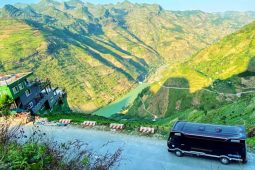




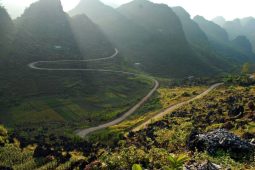
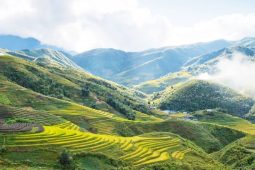

Be the first to comment!